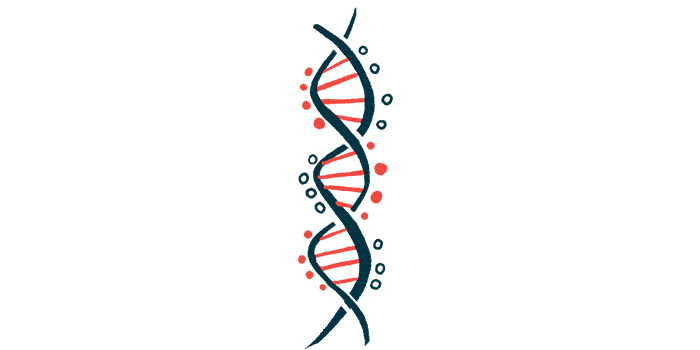Experimental Gene Therapy AT845 Shows Promise in Animal Study
Written by |

An investigational gene therapy called AT845 could effectively increase the activity of an enzyme that’s deficient in mouse and nonhuman primate models of Pompe disease, according to a study.
The research also highlights potential complications that can occur when gene therapies designed for use in humans are tested in other species.
The study, “Muscle-directed gene therapy corrects Pompe disease and uncovers species-specific GAA immunogenicity,” was published in the journal EMBO Molecular Medicine.
Pompe disease is caused by mutations in the GAA gene, which codes for an enzyme called acid alpha-glucosidase. This enzyme is needed to break down a complex sugar molecule called glycogen. As a result of Pompe-causing GAA mutations, the enzyme doesn’t work correctly, so glycogen builds up to toxic levels in cells, particularly muscle cells.
AT845 is an experimental gene therapy that is designed to deliver a functional copy of the GAA gene to muscle cells. The therapy does this using a specially engineered viral vector, specifically a type of adeno-associated virus (AAV), which is commonly employed in gene therapies because it is safe and easy to manipulate in a lab. AT845 originally was developed by Audentes Therapeutics, which was acquired by Astellas Pharma last year to become Astellas Gene Therapies.
In the study, a team led by scientists at the company, called Audentes at the time, conducted a series of tests of AT845 in animal models of Pompe disease.
First, the researchers tested the therapy using a mouse model. Results showed that a single infusion led to a significant increase in the activity of the acid alpha-glucosidase enzyme in muscle tissue in a dose-dependent manner. This increased enzyme activity was associated with reduced levels of glycogen in muscle tissue, as well as reductions in other signs of muscle tissue damage.
Tests of grip strength indicated that the gene therapy improved muscle strength, as seen six weeks after dosing and further improved at week 12.
“Together, these data demonstrate that administration of AT845 leads to a dose-dependent reduction in glycogen accumulation in skeletal muscle [movement-related], normalization of histological [tissue-related] parameters, and preservation of muscle strength in [Pompe disease] mice,” the researchers wrote.
They next evaluated AT845 in another model of Pompe disease using nonhuman primates (macaque monkeys). In line with the results in mice, a single infusion of the gene therapy led to substantial increase in enzyme activity.
“More specifically, GAA [enzyme] activity in NHPs [nonhuman primates] treated at the highest dose was 60- to 100-fold higher than values observed in vehicle-treated animals [controls] in all tissues analyzed, which included the heart,” the researchers wrote.
Despite the increase in enzyme activity, higher doses of the experimental gene therapy led to multi-organ toxicity in the primates. Further analyses revealed that the monkeys had developed a potent immune response against the acid alpha-glucosidase enzyme.
The version of the enzyme used in AT845 is the human form of the enzyme. In other experiments, the researchers used a different version of the gene therapy designed to deliver the macaque version — and found that the gene therapy did not result in the same toxicity.
These results suggest that the monkeys’ immune systems had erroneously recognized the human version of the protein as an infectious threat, prompting an immune response. This type of immune misfire is referred to as a “xenogeneic” immune response. Additional data indicated that the human version of the enzyme is not processed properly in monkey cells, likely contributing to this effect.
“The dramatic xenogeneic reaction observed in NHPs was somewhat surprising, since human proteins are regularly expressed in toxicology studies of AAV-based gene therapies with little immune consequences,” the scientists wrote.
“Overall, our results point to limitations in predicting efficacious doses of gene therapy products in murine models of lysosomal storage disorders [which include Pompe] and raise the issue of xenogeneic responses as confounding factors in toxicology studies utilizing immunocompetent [with normal immune response] non-human species,” they added.
An open-label Phase 1/2 clinical trial, called FORTIS (NCT04174105), is testing a single dose of AT845 in approximately eight adults with late-onset Pompe disease.
The first participant in FORTIS was dosed last year. The trial, to be conducted in the U.S., U.K., and Germany, is currently enrolling participants.



